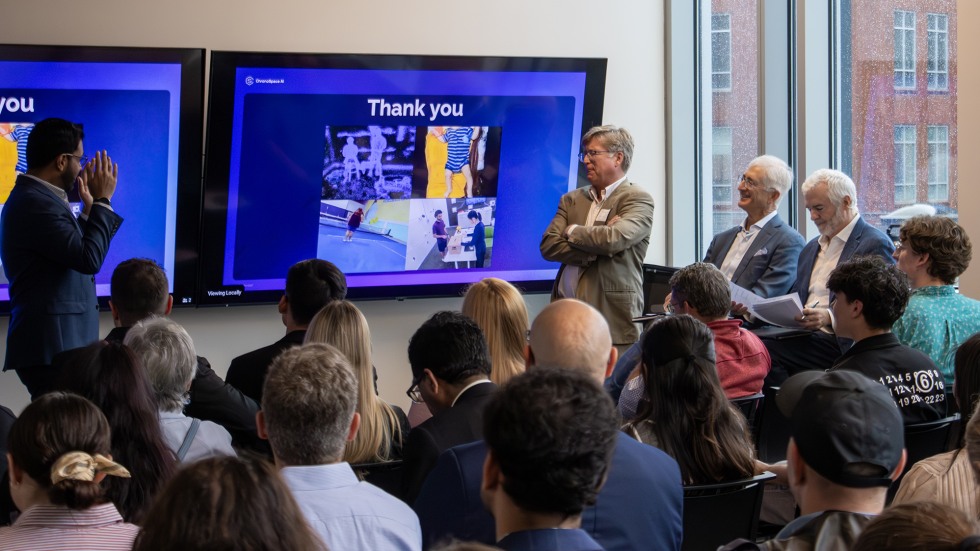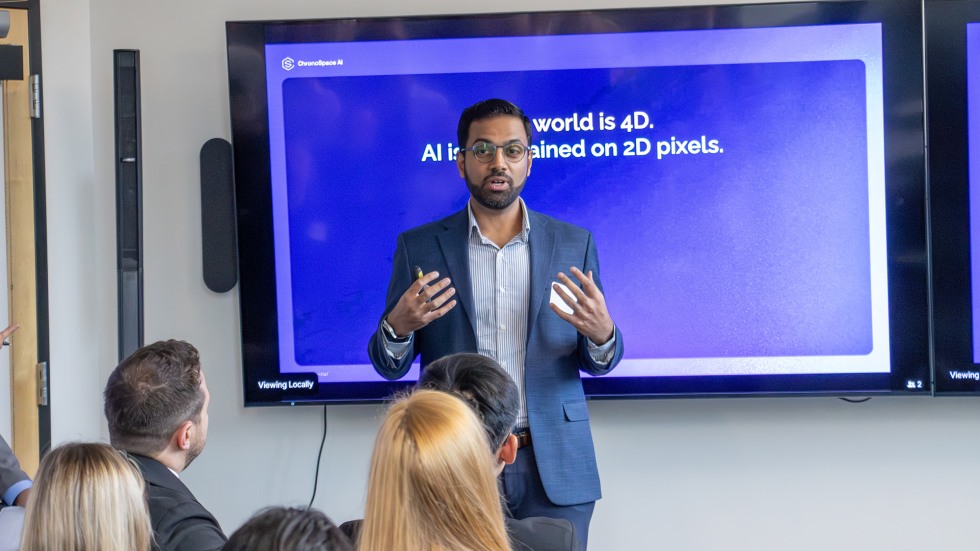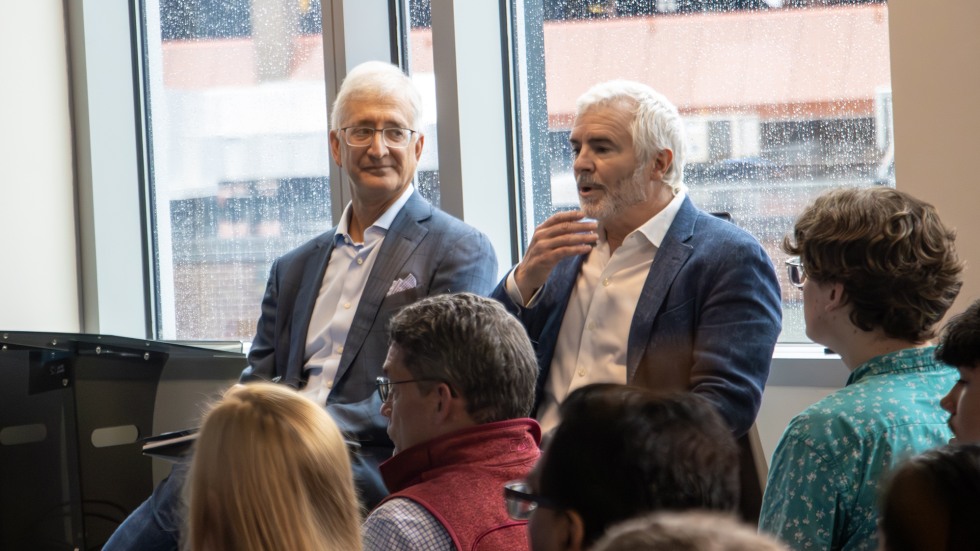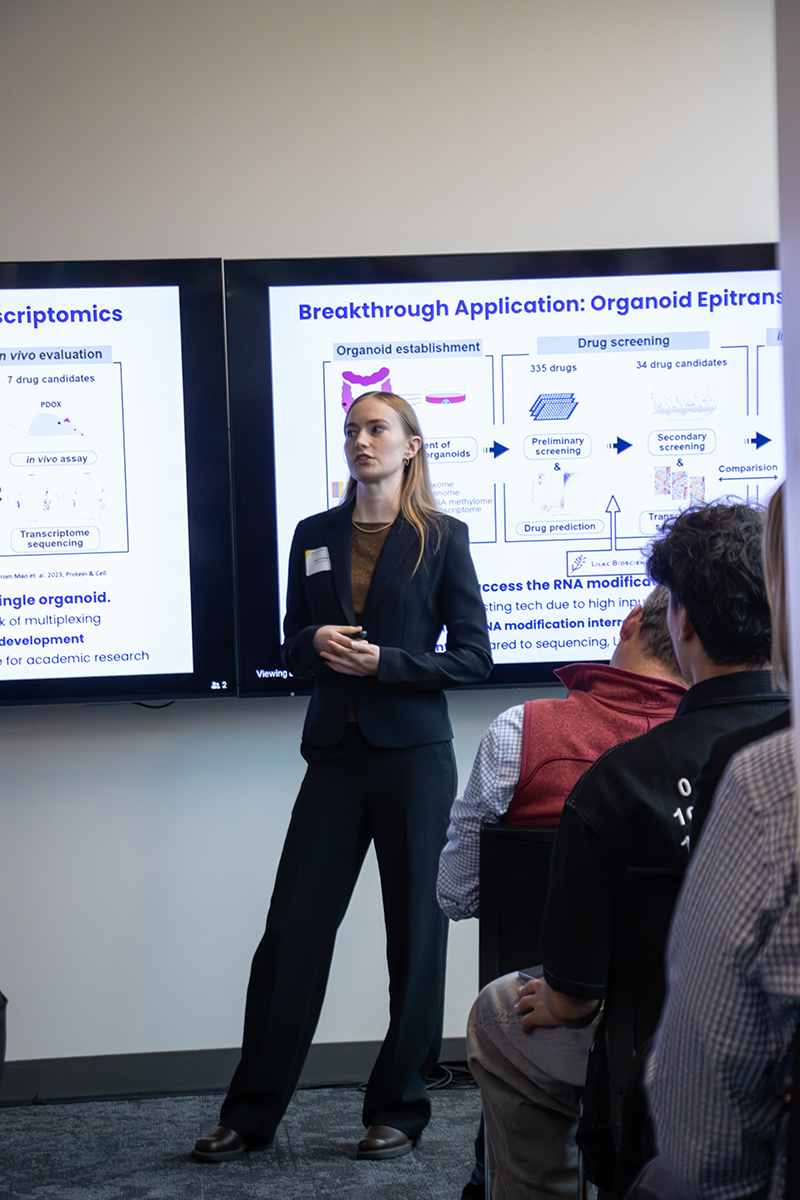PROVIDENCE, R.I. [Brown University] — From the microscopic to the macroeconomic, Brown University’s newest wave of faculty and student-founded startups took center stage at the third annual Innovation@Brown Showcase on Thursday, Sept. 25.
Hosted by Brown Technology Innovations, the University’s technology transfer office, at Providence’s Point 225 building, the event spotlighted dozens of commercial ventures across medicine, science, technology and engineering — showing how Brown community members are turning research discoveries into companies that tackle real-world challenges.
Along with networking, fireside chats with industry experts and panels on timely topics, this year’s showcase introduced a new highlight: a pitch competition. Before a panel of venture capitalists, five Brown-born startups pitched to a packed room, distilling years of research into sharp, persuasive five-minute product proposals. The founders — a mix of faculty and students — competed not only for a $1,000 prize from Slater Technology Fund, but also for the feedback and connections that could help turn their ideas into market-ready companies.
Having partnered with more than 40 companies spun out of Brown in the last 25 years, Thorne Sparkman, managing director of Slater Technology Fund, was a natural fit to emcee the event. He sees Brown as one of the greatest sources of innovation in Rhode Island and a unique place for investors to find bold ideas.
“Professors aren’t thinking about incremental investments or small improvements,” Sparkman said. “Think of cold brew versus iced coffee — they’re working on ideas that are an order of magnitude bigger, coming from left field, and that’s exciting for investors. They’re also tackling problems that truly matter: climate, cancer, pain. These are high-value challenges, and the solutions they’re pursuing could have a real impact.”



